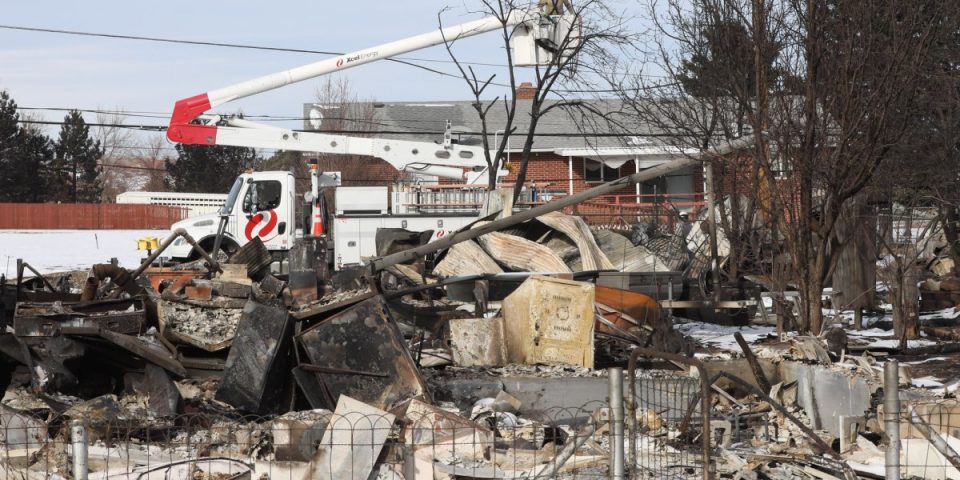Blank said he was “struck by” data submitted by Xcel Energy that indicated downed power lines ignited nearly 650 fires in 2020. When contacted by CPR News, Xcel spokesperson Michelle Aguayo corrected Blank and said its ignitions did not spark any wildfires that year.
In a statement, Aguayo said the data on ignitions, contained in an annual wildfire mitigation plan filed with regulators, can refer to events that don’t spark wildfires, including vehicles or other objects striking or damaging electric equipment. Aguayo said that balloons floating into power lines could also be recorded as an ignition.
“We record every one, regardless of size,” Aguayo said. “That does not mean an actual fire occurred.”
In 2020, most of those reported events were equipment damaged by rain, snow, wind and other storm conditions, she said.
Public Utilities Commission spokesperson Becky Quintana said Blank was aware of how Xcel reports ignitions on Wednesday and that it was a mistake to say they caused wildfires.
The Marshall fire was driven by winds that gusted as high as 100 mph. Xcel told investigators there were no downed power lines in the area of the fire, only downed communication lines, Aguayo said. Xcel did not respond to multiple requests from CPR News for details on its policies and procedures for operating power lines during high winds.
The commission’s forthcoming study could help regulators better understand Colorado’s changing climate and whether gas and electric equipment could withstand extremes in wind, temperature, precipitation and other weather, Blank said. The findings could lead the commission to bolster rules for where and how energy infrastructure is built, commissioners said.
“We’re about to invest $10 billion in new generation and transmission before 2030, with a significant amount of weather-related risks, likely, on customers,” Blank said.
Human-caused climate change, driven primarily by fossil fuel emissions, has led to warmer and drier conditions across the western United States that set the stage for natural disasters like the Marshall fire. The second half of 2021 was the warmest such period in recorded Colorado history, federal data show.


